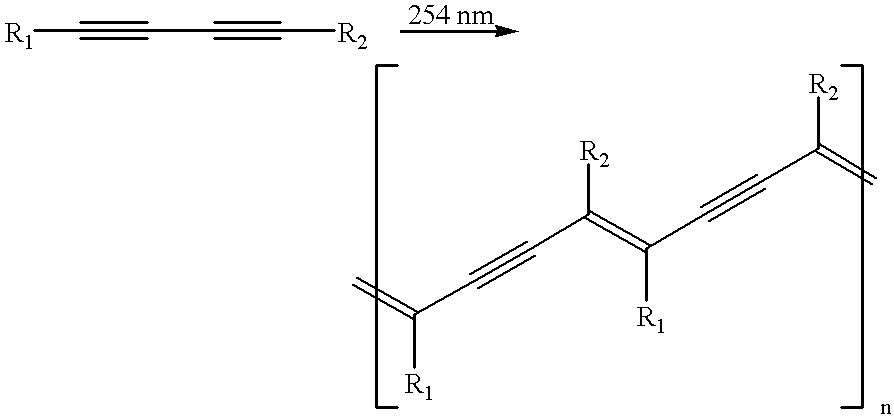Toxin detector
a technology of toxin detector and antibody detection system, which is applied in the field of immunoassays to detect contaminants in foodstuffs, can solve the problems of increasing food contamination, numerous illnesses and deaths, and kidney failur
- Summary
- Abstract
- Description
- Claims
- Application Information
AI Technical Summary
Benefits of technology
Problems solved by technology
Method used
Image
Examples
Embodiment Construction
The present invention provides methods, materials, and systems to detect the presence of toxin contaminants. More particularly, the present invention provides toxin contaminant detectors that include calorimetric, immunoreactive polymers configured to detect and report the presence of toxin contaminants in conjunction with a bar code. In some embodiments, the calorimetric, immunoreactive polymers are provided with a bar code such that, upon detection of a toxin, the colorimetric, immunoreactive polymers change from a first color to a second color to thereby obscure or otherwise change the appearance of the bar code. In other embodiments, the calorimetric, immunoreactive polymers are deposited in the form of a bar code that is not detectable by a bar code scanner until the described color change occurs upon detection of a toxin. In still other embodiments, the toxin detector of the invention includes a hub-and-spoke format that changes appearance upon detection of a toxin. Thus, the ...
PUM
 Login to View More
Login to View More Abstract
Description
Claims
Application Information
 Login to View More
Login to View More - R&D
- Intellectual Property
- Life Sciences
- Materials
- Tech Scout
- Unparalleled Data Quality
- Higher Quality Content
- 60% Fewer Hallucinations
Browse by: Latest US Patents, China's latest patents, Technical Efficacy Thesaurus, Application Domain, Technology Topic, Popular Technical Reports.
© 2025 PatSnap. All rights reserved.Legal|Privacy policy|Modern Slavery Act Transparency Statement|Sitemap|About US| Contact US: help@patsnap.com



